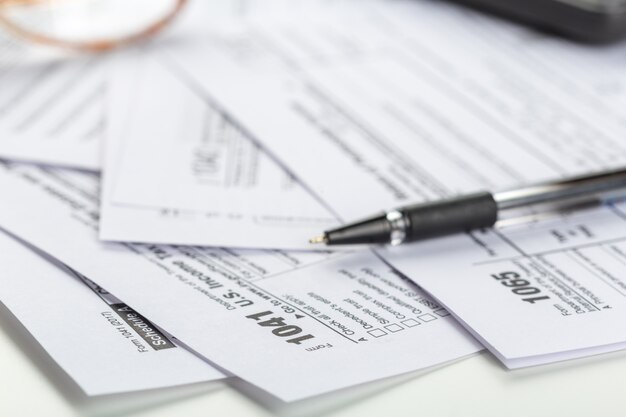Navigating Unemployment and Taxes: What Happens If You Don’t Withhold Taxes from Your Benefits?
Unemployment benefits are a crucial lifeline for countless individuals who find themselves temporarily out of work. However, when it comes to understanding the tax implications of these benefits, confusion and misconceptions often arise. One common question is, "What happens if you don’t withhold taxes on unemployment?" The answer involves a complex interplay of tax regulations, financial planning, and the potential consequences of overlooking this important aspect. In this comprehensive guide, we’ll explore the layers of this topic, providing clarity and practical insights.
Understanding Unemployment Benefits and Their Taxable Nature
What Are Unemployment Benefits?
Unemployment benefits are payments made by the government to individuals who have lost their jobs through no fault of their own. These benefits are designed to provide temporary financial assistance while individuals search for new employment. They act as a bridge for people facing unexpected job loss, ensuring they can meet their basic needs.
Are Unemployment Benefits Taxable?
Yes, unemployment benefits are considered taxable income at the federal level. This means that recipients are required to report these benefits when filing their taxes. The taxable element of unemployment benefits might catch some recipients off guard, particularly if they are accustomed to thinking of government assistance as non-taxable.
Tax Withholding on Unemployment: How Does It Work?
When you apply for unemployment benefits, you have the option to request that federal income taxes be withheld from your payments. This withholding is typically set at a flat rate of 10%. Opting for tax withholding can simplify the tax filing process by helping to prevent large tax bills when you submit your return.
The Consequences of Not Withholding Taxes on Unemployment
Immediate Financial Ramifications
Without withholding, recipients may enjoy slightly larger weekly payments. However, this decision can lead to unexpected financial burdens down the line. When tax season arrives, you may face a significant tax bill, which could be a source of stress if you haven’t set aside funds to cover it.
Long-term Implications
Beyond the immediate financial hit during tax season, consistently not withholding taxes on unemployment benefits — even when subsequent unemployment or job changes occur — may contribute to a pattern of tax debt. This situation can affect your credit score and hinder financial stability, making it essential to consider the long-term impact of your withholding choices.
Potential for Penalties
If you fail to pay the necessary taxes on your unemployment benefits throughout the year, you may incur penalties for underpayment. This occurs when you haven’t withheld enough tax to cover your liabilities, meeting neither the “100% of previous year liability” nor “90% of current year tax liability” safe harbors.
Options for Managing Taxes on Unemployment Benefits
Opting for Withholding: Pros and Cons
Pros:
- Peace of Mind: Ensures you’re not facing a large tax bill come filing time.
- Avoids Penalties: Reduces risk of penalties related to underpayment.
Cons:
- Reduced Weekly Benefits: Your weekly unemployment checks will be smaller.
Self-Payment of Taxes: An Alternative
Instead of having taxes withheld, some individuals opt to manage this independently. This involves setting aside a portion of each benefit payment to cover future tax obligations.
Quarterly Estimated Payments
Another strategy is to make estimated tax payments quarterly. This option is beneficial for those who prefer to not have federal taxes withheld from their unemployment checks but still want to manage their tax liabilities efficiently. Calculating these payments requires a good understanding of your total expected tax for the year.
Monitoring and Adjusting Withholdings
It’s important to regularly monitor your tax withholdings to ensure you’re withholding enough to cover your tax liability. Use tools like the IRS withholding calculator to make adjustments as necessary throughout the year, especially if your financial situation changes.
Managing Financial Stability During Unemployment
Creating a Budget
Budgeting is crucial when receiving unemployment benefits. Setting a budget helps you determine how much you can afford to set aside for taxes while managing other financial obligations.
Exploring Additional Support
In challenging economic times, exploring additional support systems can be beneficial. Supplemental programs and community assistance can help manage financial gaps, especially when facing increased tax liabilities.
Key Takeaways and Practical Tips
📌 Key Takeaways:
- Unemployment benefits are taxable income. Federal taxes should be factored into your financial planning.
- Withholding taxes upfront can prevent a significant tax bill and potential penalties.
- Consider quarterly estimated payments if you prefer not to have taxes withheld from your benefits.
📝 Practical Tips:
- Evaluate Your Financial Situation: Assess whether withholding taxes upfront or making quarterly payments best suits your needs.
- Use Tools for Planning: Utilize the IRS withholding calculator to make informed decisions.
- Stay Informed: Changes in tax laws can affect your liabilities — stay updated to ensure compliance.
Navigating Your Financial Path Forward
Deciding whether to withhold taxes on unemployment benefits is not a one-size-fits-all decision. It requires thoughtful consideration of your financial situation, both short-term and long-term. By understanding the tax implications, exploring your options, and planning accordingly, you can make informed decisions that support your financial stability during periods of unemployment. Remember, being proactive is key to managing both anticipated and unforeseen financial challenges effectively.

Related Topics
- Are Unemployment Checks Taxed
- Are Unemployment Payments Taxed
- Can Unemployment Take Your Taxes
- Do Employees Pay Unemployment Tax
- Do I Have To Pay Taxes On Unemployment
- Do I Want 6 Withheld Of Taxes From Ga Unemployment
- Do You Have To Pay Tax On Unemployment
- Do You Have To Pay Taxes For Unemployment
- Do You Have To Pay Taxes On Unemployment
- Do You Need To Pay Taxes On Unemployment
